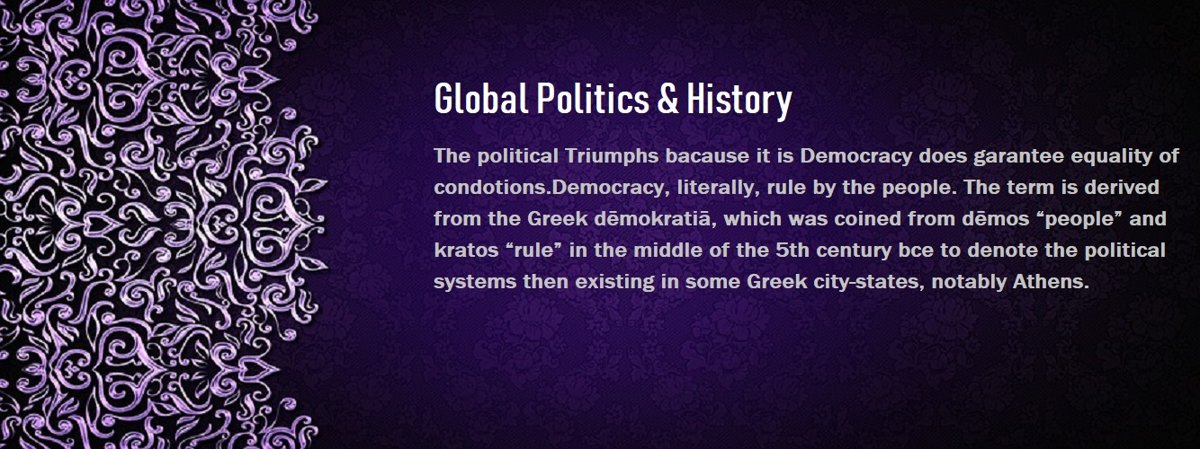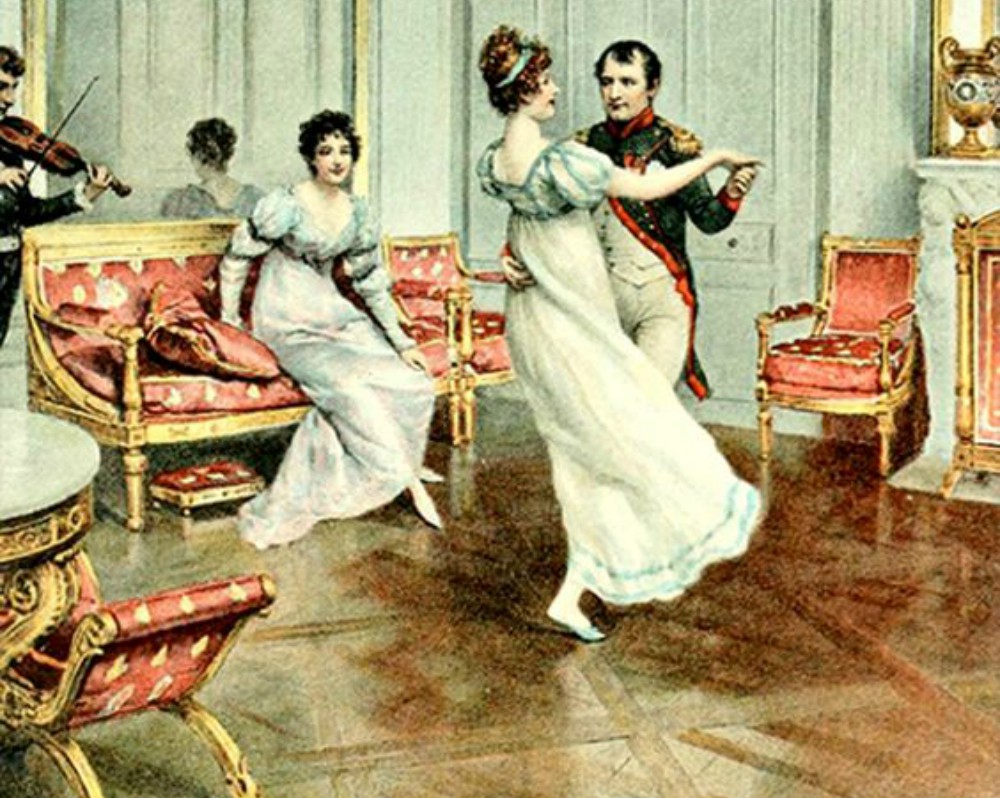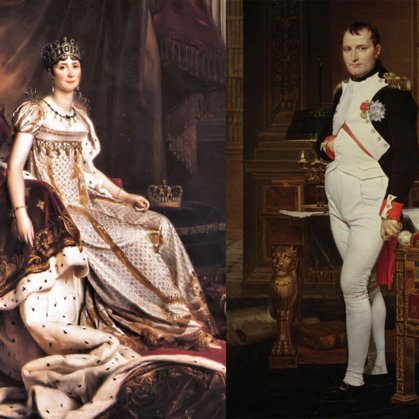FRANCE'S NAPOLEON AND HIS WIFE JOSEPHINE BONAPARTE.(1794 - 1814).NAPOLEON'S GREATEST LOVE ,"JOSEPHINE" WOULD COME FROM THE CARIBBEAN ISLAND OF MARTINIQUE.BUT NAPOLEON NEVER WENT THERE .JOSEPHINE'S FATHER OWNED A SUGAR PLANTATION,COMPLETE WITH SLAVE ,ON THE ISLAND.
 Joséphine de Beauharnais was a socialite who eventully became General Napoleon Bonaparte’s wife and a French empress.
Joséphine de Beauharnais was a socialite who eventully became General Napoleon Bonaparte’s wife and a French empress.
Joséphine de Beauharnais was Napoleon’s first wife and the first Empress of the French. During the Reign of Terror, Joséphine’s first husband had been guillotined. Due to not bearing any children for Napoleon, he divorced her in 1810 after fourteen years of marriag ,and then he marry Marie Louise of Austria.
The love story between Napoleon and Josephine is definitely greatly publicised, but not necessarily great.Some historians believe that the future Emperor met his wife-to-be at a ball in the house of Paul François Barras, the member of the Directory and Josephine's former lover.Napoleon became a general at a very young age and was put in a position of authority where the generals and almost all other officers he commanded were older than him. He felt that this wasn't a satisfactory situation and concluded that if he married a woman older than himself, he might claim to be older than he actually was and thereby obtain a little more respect from his officers. He also wanted to marry a rich, older woman. Napoleon's secretary Bourrienne, however, tells a completely different story in his memoirs. According to Bourrienne, Josephine's son Eugene presented himself to General Bonaparte in order to solicit his father's sword. Napoleon liked the boy and granted his wish. When Josephine learnt of the kindness the young general showed to her son, she called on him to thank him in person. Meneval, who became Napoleon's secretary after Bourrienne, recalled that 'Josephine was irresistibly attractive. Her beauty was not regular but she had la grace.'What we do know for a fact is Napoleon's deep affection and love for Josephine from the very start of their relationship. He wrote passionate letters to her from day one. Here is a letter he wrote after they spent the night together: 'My waking thoughts are all of you. Your portrait and the remembrance of last night's delirium have robbed my senses of repose. Sweet and incomparable Josephine, what an extraordinary influence you have over my heart. Are you vexed? Do I see you sad? Are you ill at ease? My soul is broken with grief, and there is no rest for your lover. But is there more for me when, delivering ourselves up to the deep feelings which master me, I breathe out upon your lips, upon your heart, a flame which burns me up. It was this past night I realised that your portrait was not you. You start at noon. I shall see you in three hours. Meanwhile, my dolce amor, accept a thousand kisses, but give me none, for they fire my blood.On June 23, 1763, Marie Josèphe Rose Tascher de La Pagerie was born in Les Trois-Îlets, Martinique to Joseph Gaspard Tascher and Rose-Claire des vergers de Sannois. Her family was very wealthy and owned a sugarcane plantation. However, they began to struggle financially when their plantation was destroyed by hurricanes in 1766. When Joséphine’s aunt arranged a marriage between her sister and François, Vicomte de Beauharnais’s son, the family would regain their wealth, but Catherine-Désirée, her sister, died before leaving Martinique. So instead, Joséphine took her sister’s place.In October of 1779, Joséphine and her father left for France. On December 15, 1779, she married Alexandre de Beauharnais in Noisy-le-Grand. In 1881, their first son, Eugéne de Beauharnais, was born and in 1783, their daughter Hortense de Beauharnais. Hortense later went on to marry Napoleon’s brother in 1802. However, the marriage between Joséphine and Alexandre was very unhappy. This led to a separation ordered by the court and the children lived with their father in the Pentemont Abbey.Alexandre’s arrest was ordered on March 2, 1794 by the Committee of Public Safety during the Reign of Terror. He was imprisoned in Paris and was guillotined on July 23, 1794. Joséphine was also put in jail on April 18, 1794, but was released on July 28.Napoléon proposed in January of 1796 and the two wed on March 9. While Joséphine had been known as Rose before, he preferred Joséphine, which was from then on the name she used. The groom’s family did not react well to the marriage, especially since Joséphine was older and a widow with two children. He left two days after the wedding to lead the French army in Italy and wrote many more love letters to her while they were separated. “You to whom nature has given spirit, sweetness, and beauty, you alone can move and rule my heart, you who know all too well the absolute empire you exercise over it!” he wrote in February of 1797.While Napoléon was off in Italy, Joséphine also was having an affair with Hippolyte Charles, a handsome hussar lieutenant. Eventually the news of the affair reacher her husband, who was furious. From then on, he did not love her the same as before. In fact, he began his own affair when leading the French army in Egypt in 1798 with Pauline Fourès, a junior officer’s wife. She became known as “Napolépn’s Cleopatra”. This only further ruined the relationship between Napoléon and his wife, his letters much less loving than they had been before. Napoléon continued to have many affairs throughout their marriage, but there were no more recorded of Joséphine’s.During his time in Egypt in 1799, Joséphine bought the Château de Malmaison and had it landscaped to resemble the English style with landscapers from Britain. Soon after she purchased it, Andre Dupont was inspired by his love of roses and began a rose garden. Joséphine was personally interested in the roses and gardens, and her staff taught her much about botany and horticulture. In fact, she became so fascinated with roses, that she wanted to collect all known types. So, Napoléon ordered for his warship commanders to search all vessels they had seized for plants that could be given to his wife for Malmaison. During her lifetime, she had about 197-200 types of roses at her home. This earned her the nickname of the “Godmother of modern rosomanicas”. The garden she took such pride in was destroyed many years after her death in 1870.
Who was Josephine?
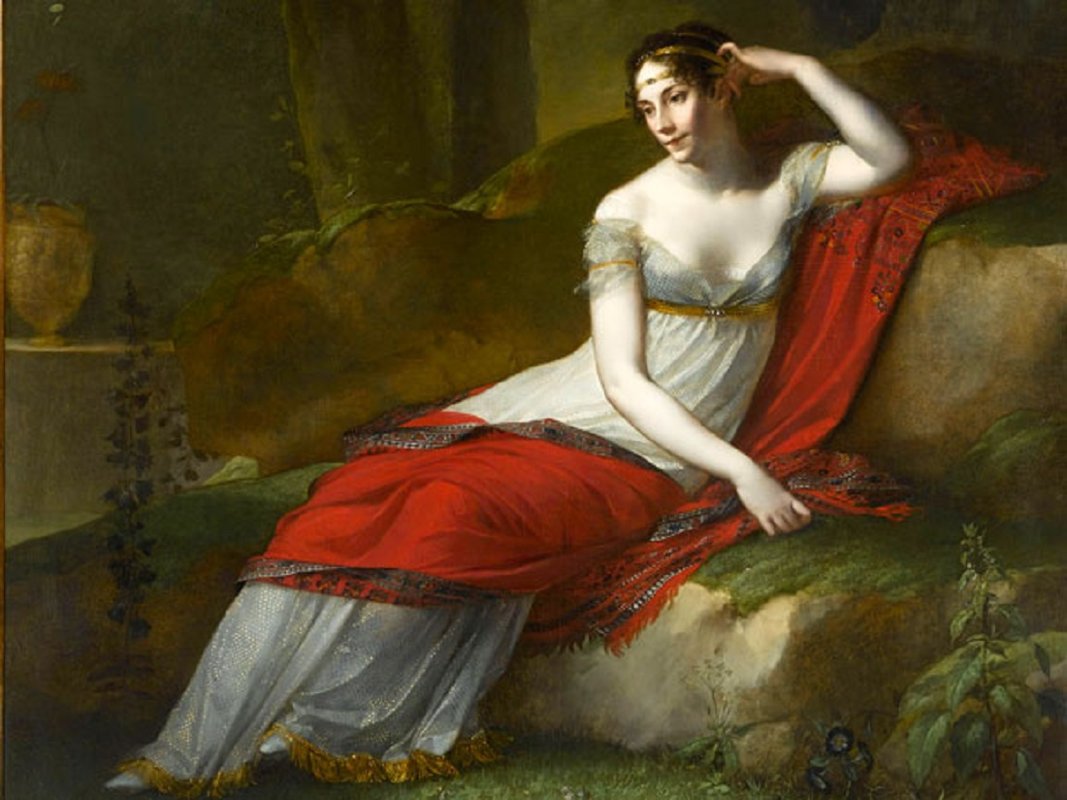 Joséphine Bonaparte original name Marie-Josèphe Rose de Tascher de la Pagerie,Joséphine, the eldest daughter of Joseph Tascher de La Pagerie, an impoverished aristocrat who had a commission in the navy, lived the first 15 years of her life on the island of Martinique.
Joséphine Bonaparte original name Marie-Josèphe Rose de Tascher de la Pagerie,Joséphine, the eldest daughter of Joseph Tascher de La Pagerie, an impoverished aristocrat who had a commission in the navy, lived the first 15 years of her life on the island of Martinique.
Marie-Josèphe Rose de Tascher de la Pagerie was born on 23 June 1763 on the island of Martinique. She was the oldest of three daughters born to Joseph de Tascher de La Pagerie, an impoverished aristocrat. At the age of fifteen she was promised in marriage to Alexandre de Beauharnais, a young noble and officer who had spent his childhood with the La Pagerie family in Martinique. While the young Rose, arriving from the provinces to sophisticated Paris, anticipated the attentive romance of a new marriage, Alexandre had married for the social convenience it gave him and in order to access his inheritance. He was in love with Laure de Longpré, the wife of another naval officer, who was pregnant with his child and whose husband died just months before Alexandre and Rose were married. Their marriage produced two children, Eugene and Hortense, but from the outset Alexandre was emotionally absent, in addition to the protracted physical absences necessitated by his military assignments. In 1783, after three years of unhappy marriage, Rose applied for a legal separation and withdrew to the convent of Panthemont where gentlewomen disadvantaged by circumstance were able to find refuge.In 1788, with Eugène living with his father, Rose and Hortense returned to Martinique. It was there that they heard the news of the events of 14 July 1789. The tremors of the Revolution did not take long to affect the colonies and soon Josephine was fleeing back to France for refuge.Alexandre de Beauharnais was a vocal supporter of the ideals of the Revolution and an active member of the Jacobin party. As acting president of the Constituent Assembly, it was he that gave the order for the arrest of the royal family during their attempt at flight to Varennes in 1791. Despite this, he was imprisoned during the Terror for dereliction of duty in his command of the Army of the Rhine (which led to the loss of the French held city of Mainz). He was executed as an enemy of the Revolution and Rose was imprisoned. Only the beheading of Robespierre in the days before her execution saved Rose from the same fate as her husband.In the chaotic times that followed the Terror, Rose’s social network grew and she pursued a number of liaisons with powerful and well connected people such as Paul Barras (one of France’s five Directors after the fall of the National Convention), using her acquaintances to generate income to support herself and her children.In 1795, up and coming artillery officer Napoleon Bonaparte came into the orbit of Barras and his circle. He was entranced by Rose’s exotic femininity and her social position, thinking that she could gain him entrée to France's higher social circles. He also mistakenly believed that she could secure the financial situation of his own family with her income from Martinique. Rose did little to dispel this myth, although in truth, she laboured under many debts and struggled to pay for her extravagant lifestyle. Her spending would always be a source of conflict between them.In 1795, when extremist Parisians, opposed to the new constitution of the Convention, threatened to attack government offices in the Tuileries, Barras called on Napoleon to suppress the uprising. His success in quelling the insurgence led to promotion and prominence as a new star of the Directory. Rose, perhaps at the prompting of Barras, began to show interest in Napoleon and he became infatuated with her. Napoleon called Rose ‘Josephine’ and she adopted this name. They were married in March 1796.
The Bonaparte family were hostile to the union and to Rose from the outset. While the ideal Corsican woman was diligent, frugal, passionate and dedicated to family, Josephine was immodest, spendthrift and easy-going but emotional. At thirty-two she was considered already old and the two children from her first marriage were seen as an encumbrance. Her grace and ease in society contrasted with the awkward manners of the Bonapartes. They conspired to be rid of her and made her life uncomfortable with acts of hostility.
 Her marriage to Napoleon I was her second; her first husband Alexandre de Beauharnais was guillotined during the Reign of Terror, and she was imprisoned in the Carmes prison until five days after Alexandre's execution.
Her marriage to Napoleon I was her second; her first husband Alexandre de Beauharnais was guillotined during the Reign of Terror, and she was imprisoned in the Carmes prison until five days after Alexandre's execution.
As soon as they got married, Napoleon left on his Italian Campaign. He overwhelmed Josephine with letters and declarations of his love. 'I curse the glory and ambition which keeps me from the soul of my life,' he wrote. Napoleon's ardour was a source of much entertainment for Josephine, who enjoyed mocking him and reading his letters aloud to her friends. Her own letter to him were cold and rare. She used a formal vou when addressing her husband, something that upset him immensely. 'You treat me to a vou?' he raged in one of his letters. Napoleon was faithful to Josephine while on campaign and entreated her to come and see him in Italy. Josephine kept him waiting. Last thing she wanted was to leave Paris with its theatre, balls, shopping and, most importantly, a young and dashing hussar Hippolyte Charles, with whom she was conducting a passionate and very public affair. When she finally conceded and came to see Napoleon, she brought Charles with her. So happy was Napoleon to see his wife, he didn't suspect a thing.Napoleon finally found out about the affair in 1798 in Egypt. 'I have a great, great deal of domestic sorrow now the veil has been completely lifted,' Napoleon wrote to his brother Joseph. To add insult to injury, this letter had been intercepted by the Royal Navy and published in England. Napoleon was adamant in his desire to divorce Josephine as soon as he returned to Paris. No letters from Napoleon to Josephine survive from the Egyptian campaign. It was possible that he stopped writing to her when he found out about the affair. Only after Josephine betrayed him did Napoleon have an affair himself - with Pauline Foures, a beautiful wife of one of the officers. On December 2, 1804, Pope Pius VII officiated Napoléon and Joséphine’s coronation ceremony as Emperor and Empress of the French at Notre Dame de Paris. First, Napoléon crowned himself before proclaiming his wife his empress when he crowned her. Shortly before the ceremony though, their marriage had nearly ended when Joséphine caught him in the bedroom with Élisabeth de Vaudey, her lady-in-waiting. Napoléon first threatened to divorce her then because she had yet to produce him an heir.Joséphine was described as being very tall, her chestnut-brown hair silky and long, and her eyes the color of hazel. Her nose was small and straight and she had a well-formed mouth that was often kept closed due to her bad teeth. Many praised her for her elegance and style along with her beautiful voice described as low and “silvery”.They were married and a few days later Napoleon departed to Italy. He genuinely loved Josephine at this time. She despised him and thought he was a total bore. As soon as he was gone she began playing around on him. As time went on she had a string of lovers, pretended to miss him very much in response to his daily love letters, and did everything in her power to avoid going to join him in Italy as he was constantly urging. She even went so far as to pretend she was pregnant and couldn't travel. All this time she was attending balls and parties and committing adultery. From time to time, when Napoleon begged her to join him, she required Barras' assistance to convince Napoleon that she should not go. During this time some of Napoleon's officers, Murat, for example, had returned to Paris for one reason or another and had occasion to attend one of Josephine's parties or a party that she attended. In Murat's case, Napoleon had sent him back to Paris with the express mission of escorting Josephine to Italy, willingly or unwillingly. This was when Josephine made up the pregnancy story, which Murat "took" back to Napoleon instead of Josephine. While in Paris, Murat also heard all the gossip about Josephine and how she was making a fool out of Napoleon. Finally, it got to the point where Napoleon was getting so edgy that Barras was afraid he would return to France and forget about the Italian Campaign. This didn't suit Barras because he was making a lot of money out of that campaign. So he ordered Josephine to go to Napoleon. She did. Napoleon expected a pregnant Josephine. When she arrived she explained to him that she had had a miscarriage. He was torn with grief over losing his "son."
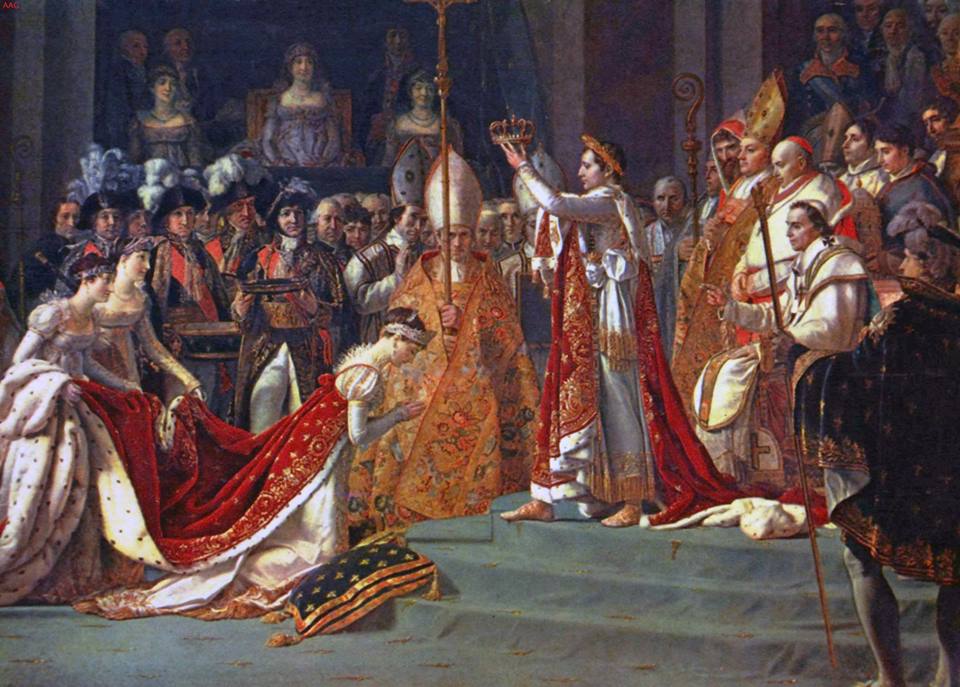 Coronation of Emperor Napoleon I and Coronation of the Empress Josephine in Notre-Dame de Paris, December 2, 1804.The coronation of Napoleon as Emperor of the French, which took place on Sunday December 2, 1804 (11 Frimaire XIII according to the French Republican Calendar), has been said to mark "the instantiation of modern empire", representing a "transparently masterminded piece of modern propaganda". On May 18, 1804, the Sénat conservateur vested the Republican government in an Emperor, and preparations for a coronation followed. Napoleon's elevation to Emperor was overwhelmingly approved by the French citizens in a referendum. Among Napoleon's reasons for coronation were the prestige in international royalist and Catholic milieux and the foundation for future dynasty.
Coronation of Emperor Napoleon I and Coronation of the Empress Josephine in Notre-Dame de Paris, December 2, 1804.The coronation of Napoleon as Emperor of the French, which took place on Sunday December 2, 1804 (11 Frimaire XIII according to the French Republican Calendar), has been said to mark "the instantiation of modern empire", representing a "transparently masterminded piece of modern propaganda". On May 18, 1804, the Sénat conservateur vested the Republican government in an Emperor, and preparations for a coronation followed. Napoleon's elevation to Emperor was overwhelmingly approved by the French citizens in a referendum. Among Napoleon's reasons for coronation were the prestige in international royalist and Catholic milieux and the foundation for future dynasty.
A few more years passed and it had become clear by that point that Joséphine would not be bearing any more children and producing an heir for Napoléon. He began to seriously think about divorcing her for this.They remained husband and wife but from that point onward he was not a faithful husband. Strangely, she had become a faithful wife. The tables had turned. Napoleon had mistress after mistress. Now, although Napoleon didn't live Josephine, he did hold a deep devotion to her two children and he respected her abilities as a hostess and her persuasiveness in getting people to do things for him. He knew that while he was married to Josephine he could not produce a legitimate heir of his own, so eventually, when Hortense and his brother Louis had a son, Napoleon named him his heir. In 1807, to further worsen the situation for Napoléon, his heir and Joséphine’s grandson, Napoléon Charles Bonaparte, died of croup. From there, he began to create lists of princesses he could possibly marry. And on November 30, 1809, Joséphine was eating dinner with her husband when he told her that he would divorce her and marry someone who could give him an heir.Napoleon forgave Josephine when he returned to Paris but their relationship was never the same. His passion for her cooled, while she developed a strong love and respect for her husband. Josephine would never be unfaithful again but Napoleon would have many affairs. He divorced Josephine in 1809 because she couldn't give him an heir and married an Austrian princess Marie Louise. He was very good to Josephine during the divorce, gifting her with residences and generous annual allowance, paying off her massive debts and allowing her to keep her Imperial title of Empress. They remained in touch until Josephine died in 1814.Joséphine agreed and the divorce ceremony took place on January 10, 1810. The ceremony was solemn yet very grand and both Joséphine and Napoléon read each other a statement of devotion. Even after, Napoléon insisted that she keep her title, saying “It is my will that she retain the rank and title of empress, and especially that she never doubt my sentiments, and that she ever hold me as her best and dearest friend.”After the divorce, Joséphine lived near Paris at the Château de Malmaison and she and Napoléon remained on good terms. He arranged for her to meet his son two years after he was born in 1813. Napoléon II once said regarding his father’s first wife, “If Joséphine had been my mother, my father would not have been buried at Saint Helena and I should not be at Vienna. My mother is kind but weak; she was not the wife my father deserved.”On May 29, 1814, Joséphine died in Rueil-Malmaison at the age of fifty. Not long before, she had walked through the gardens of Malmaison with Tsar Alexander of Russia. Joséphine was buried nearby in Rueil at the church of Saint Pierre-Saint Paul. Later on, her daughter Hortense was interred near her.Napoléon was in exile in Elba when he learned of his first wife’s death. upon hearing the news, he would not leave his locked room for two days and refused to see anyone. “I truly loved my Joséphine, but I did not respect her,” he said in Saint Helena later on to a friend. He died in Saint Helena on May 5, 1821 and his last words were, “France, the Army, the Head of the Army, Joséphine.”In 1814, when Napoleon abdicated, Marie-Louise returned to Austria with her father, taking her son with her. Napoleon never saw them again. Josephine continued to love Napoleon and later in the year, as she was dying from diphtheria, Napoleon's name was one of the last words she uttered, if not the last. Hortense and Eugene continued to be faithful to Napoleon.
 Napoleon's Farewell to Josephine,Napoleon divorces Josephine.Just two months after the divorce, Napoléon married Marie-Louise of Austria . She gave birth to a son on March 20, 1811 named Napoléon François Joseph Charles Bonaparte.Anyway, to marry Marie Louise he first had to divorce Josephine, which he did. However, he had grown to love her again not the great love he held for her in the beginning but a respectful love. He insisted that she retain the title of Empress and provided for her and her children.
Napoleon's Farewell to Josephine,Napoleon divorces Josephine.Just two months after the divorce, Napoléon married Marie-Louise of Austria . She gave birth to a son on March 20, 1811 named Napoléon François Joseph Charles Bonaparte.Anyway, to marry Marie Louise he first had to divorce Josephine, which he did. However, he had grown to love her again not the great love he held for her in the beginning but a respectful love. He insisted that she retain the title of Empress and provided for her and her children.
